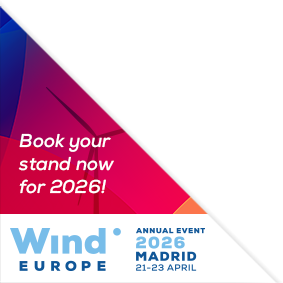Posters
Siblings:
ProceedingsProgrammeSpeakersPostersContent PartnersPowering the Future stageMarkets TheatreStudent programmeResearch & Innovation in actionProgramme Committee & abstracts reviewersPresenters’ dashboardCome meet the poster presenters to ask them questions and discuss their work
We would like to invite you to come and see the posters at our upcoming conference. The posters will showcase a diverse range of research topics, and will give delegates an opportunity to engage with the authors and learn more about their work. Whether you are a seasoned researcher or simply curious about the latest developments in your field, we believe that the posters will offer something of interest to everyone. So please join us at the conference and take advantage of this opportunity to learn and engage with your peers in industry and the academic community.
On 9 April at 17:15, we’ll also hold the main poster session and distinguish the 7 best posters of this year’s edition with our traditional Poster Awards Ceremony. Join us at the poster area to cheer and meet the laureates, and enjoy some drinks with all poster presenters!
We look forward to seeing you there!

PO041: Quantifying the benefits of coordinated planning for offshore wind development in Europe
Felix Fliegner, Researcher, TU Dresden
Abstract
The high ambitions of Europe to develop up to 500 GW offshore wind by 2050 will require to install an unprecedented amount of wind farms and their grid connection in the years to come. Beyond the mere challenge of pace, this paper outlines several other cornerstones for a successful offshore wind development on the continent. They involve a maritime spatial planning dimension for the selection of suitable sites and corridors, a financial and efficiency dimension regarding the potential yield reductions due to wake losses in high wind power density areas such as the German Bight of the North Sea and ultimately a resource and supply chain challenge to build and operate the offshore grid of the future. This paper emphasises that all three challenge dimensions share a common denominator, namely a need for cross border coordinated planning for space, planning and developing of projects. In two analyses steps the understanding of these challenges is deepened with help of a wake loss assessment as well as a spatial analysis in a geographic information system. First, the potential of wake loss reduction via means of cross border collaboration is found to be in the order of 8 GW of installed capacity for the German Bight. Second, long term and cross border planning of future infrastructure in the maritime space can allow Europe to onboard sustainability targets more effectively as unavoidable crossings of natural protected areas can be reduced to a minimum, while not significantly adding on the total corridor length. Yet, the challenge of producing sufficient cables and other assets remains a critical challenge. A comparison to previous efforts in installing offshore infrastructure (e.g. for the oil and gas industry in North and Baltic Sea) finds that this challenge is, however, not unmet.



